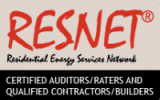When it comes to choosing a new heating and cooling system, many homeowners are mostly worried about their equipment being too small. This is easy to understand—who would want a new HVAC system that wasn’t powerful enough to keep their house warm or cool enough?
Unfortunately, homeowners (and even some professional HVAC installers) tend to go with a unit that’s too big. But oversized systems come with their own problems. Here’s why, and how you can make sure that you’re getting the right-sized equipment for your Colorado home.
The Dangers of Having an Oversized HVAC System
Here are the potential problems you might face with an oversized system:
Short Cycling
Oversized HVAC systems tend to turn on and off frequently. This stopping and starting, known as short cycling, means the system doesn’t operate long enough to maintain a consistent temperature.
Uneven Indoor Temperatures
Short cycling can result in uneven temperature distribution in your home. This can lead to hot and cold spots throughout your home, as your system blasts conditioned air out of your vents but doesn’t run long enough to distribute the air evenly throughout your living spaces.
Unnecessary Wear and Tear
A system that is turning on and off more frequently than it needs to can cause more wear and tear on the equipment, decreasing its lifespan.
Loud Operation
An HVAC system that’s too large for a home might push more air than the ducts can handle, resulting in noisier operation.
High Humidity
This is only relevant for central air conditioner units or heat pumps in cooling mode, but an oversized cooling system can have trouble removing humidity from your indoor air. The system cools the room quickly, shutting down before it can properly dehumidify the space. This can not only lead to comfort issues but, in certain situations, mold growth as well.
How to Avoid Buying an HVAC System That’s Too Big
So, can your HVAC system be too big? Absolutely. But how do you ensure you get the right size HVAC for your home? Here are some steps to take:
- Make sure you have a Manual J and D Calculation performed: Check to see if your contractor will do Manual J (load calculation), Manual S (equipment selection), and Manual D (duct design) calculations before recommending a specific HVAC unit. These standards and protocols are critical for determining the right heating and cooling equipment for your home.
- Upgrade your home’s insulation and air sealing: Before investing in a new HVAC system, consider upgrading your home’s insulation and sealing any air leaks. Not only will this make your home more energy efficient, but it might also mean you need a smaller (and less expensive) HVAC system.
Find the Right HVAC System for Your Colorado Home with e3 Power
Is it better to oversize or undersize your HVAC? Neither—it’s best to have a system tailored to your home’s unique needs. That’s where e3 Power can help. We pride ourselves on:
- Unbiased advice: Being an independent third party, we offer building-science-based data and recommendations you can trust. Because we don’t actually install HVAC equipment or insulation, you can be sure that we aren’t just trying to sell you something expensive. We’ve done more than 2,000 Manual J/D/S reports to date!
- Insulation expertise: We don’t just stop at HVAC advice. We can also evaluate your home’s insulation levels with a home energy audit so that you don’t invest in an oversized HVAC system that wastes energy due to poor insulation and air leaks.



